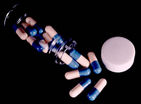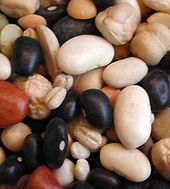
© SOTT
Two large studies released Sunday cast doubt on the cardiac benefits of either low-dose aspirin or vitamin supplements.
First, Japanese researchers found that low-dose aspirin did not reduce the risk of cardiovascular events in people with type 2 diabetes.
Second, Harvard researchers concluded that neither vitamin E nor vitamin C reduced the risk of major cardiovascular events in a group of low-risk, middle-aged male physicians.
People with diabetes are at a much higher risk for cardiovascular events, and the American Diabetes Association recommends the use of aspirin as a primary prevention measure. However, there is scant evidence to support the recommendations, said researchers from Kumamoto University in Japan.
The JPAD trial randomized 2,539 Japanese patients with type 2 diabetes with no history of atherosclerotic disease to receive low-dose aspirin (81 or 100 milligrams per day) or to be in a non-aspirin control group.
While aspirin resulted only in a slight reduction in the risk of coronary, cerebrovascular and peripheral vascular events in participants, it did reduce combined fatal coronary and cerebrovascular events.
Among volunteers aged 65 or older, there was a borderline significant reduction (32 percent) in the risk of coronary, cerebrovascular and peripheral vascular events.
The study leaves a number of questions unanswered, experts said.
"We have to wait for more studies," said Dr. Suzanne Steinbaum, director of women and heart disease at Lenox Hill Hospital in New York City. "I also don't know if we can use this data to extrapolate to an American population."
"There was a trend for cardiovascular event reduction, but not even close to being statistically significant, and also significantly lower fatal events, but again very few," said Dr. Carl J. Lavie, medical director of cardiac rehabilitation at Ochsner Heart & Vascular Institute in New Orleans. "For some, the diabetes mellitus population does not seem to be gaining the expected aspirin benefit, at least in primary prevention. Certainly, there is proven aspirin benefit in secondary prevention. Right now, it would be hard to make a very strong case for low-dose aspirin, at least in the relatively healthy diabetic in primary prevention."
Indeed, the study authors themselves said that the role of aspirin as primary prevention in patients with type 2 diabetes is yet to be understood.
As with aspirin in the diabetic population, vitamin E and C supplements are widely used to prevent cardiovascular events, again without strong evidence to support the practice in low-risk individuals.
In the second study, 14,641 U.S. male doctors aged 50 or older were randomly assigned to receive 400 IU of vitamin E every other day and 500 milligrams of vitamin C every day or a placebo at the same intervals. The vast majority of participants had no history of cardiovascular disease.
After a mean follow-up of eight years, the researchers determined that neither vitamin had an effect on the incidence of major cardiovascular events or death, when compared with a placebo. This was true even of the 5.1 percent of men who had a history of cardiovascular disease.
There was, however, a 74 percent increase in the risk of hemorrhagic (bleeding) stroke among men in the vitamin E group.
"Based on this and other studies, there is absolutely no reason for patients to be taking E for cardioprotection, and if they are doing so, we should encourage them to stop, as I have been doing for the last five years or so," Lavie said. "The jury has still been out about C, but this certainly indicates no benefit, although no definite harm."
A representative for the supplements industry took a different view.
"Although the results did not demonstrate an overall benefit [for vitamins E and C], the results also do not discount the earlier epidemiological data showing that people with high intakes of vitamins E and C may have a lower risk of cardiovascular disease," Andrew Shao, vice president of scientific and regulatory affairs at the Council for Responsible Nutrition, said in a statement.
"Nutrition research is extremely complex," Shao added, "and doesn't always provide clear-cut answers. This study raises an interesting set of scientific challenges as to why the benefits found in observational studies have not been confirmed in this kind of trial."
Both studies were expected to be published in the Nov. 12 issue of the
Journal of the American Medical Association and were released early to coincide with presentations on Sunday at the American Heart Association's annual scientific sessions, in New Orleans.

© SOTT
Other research from the meeting showed that both traditional and novel nutritional strategies could reduce risk factors for heart disease.
Drinking three cups a day of hibiscus tea (found in most commercial tea blends in the United States) lowered blood pressure over a six-week period, most significantly among those with the highest blood pressure to begin with, Diane McKay, an assistant professor at Tufts University, said during a Sunday news conference. "Even small changes in blood pressure...when seen in large population studies, will effectively reduce the risk of certain mortalities," she said.
Other research showed that three servings of non-soy legumes such as beans and chickpeas lowered total and LDL ("bad") cholesterol, according to a meta-analysis of previous studies. "My Pyramid suggests three cups weekly of dry beans and peas, or legumes, and we are very, very far behind," said Dr. Lydia A.L. Bazzano, of Tulane University in New Orleans.
Two additional studies found that eating high-fat diets increased left-ventricular mass, which is linked to left ventricular dysfunction, a predictor for heart failure, while diets high in fruits, vegetables and fish had the opposite effect, said researchers at Drexel University School of Public Health in Philadelphia.
Reader Comments
to our Newsletter